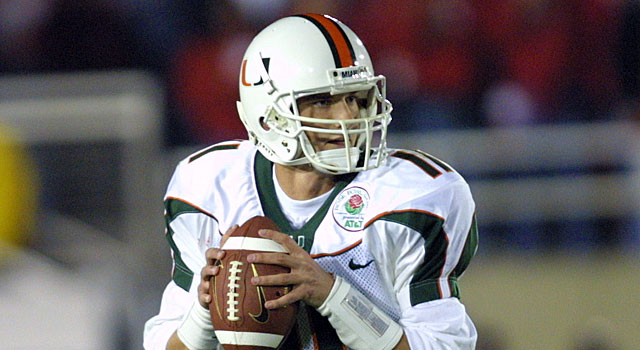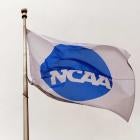
Throughout June and July and to commemorate the final year of the BCS era, Jerry Palm will be taking a year-by-year look at the machinations and controversies of the postseason system unleashed upon college football in 1998. Previous installments of the series can be found HERE.
Format: The championship game was the Rose Bowl. The regular Rose Bowl wasn’t played. Illinois fans were not very happy about it.
Number of bowls: 25. New bowls: New Orleans. Also, the Oahu Bowl moved to Seattle and became the Seattle Bowl, and the Aloha Bowl took the year off.
Number of Division I-A teams: 117. New schools: South Florida and Troy (independent)
Conference realignment: The Big West disbanded, and the Sun Belt started up. The initial members of the Sun Belt were Arkansas State, Idaho, Louisiana-Lafayette, Louisiana-Monroe, Middle Tennessee State, New Mexico State and North Texas. Also, Utah State became an independent, Boise State and Louisiana Tech joined the WAC, and TCU signed up with Conference USA.
Formula changes: The BCS changed the formula in an effort to come up with something that would eliminate the scenario that led to Florida State finishing ahead of Miami despite a better ranking and head-to-head win by the Canes in 2000. There were three changes. In an effort to minimize margin of victory, some of the computer rankings were replaced. The Dunkel Index and New York Times rankings were removed and replaced by the Colley Matrix and Peter Wolfe's rankings. Also, Richard Billingsley changed his formula to remove margin of victory, and Ken Massey created a new, non-MOV version of his rankings for the BCS to use. As a result, the eight computer rankings were now split, with four considering MOV and four ignoring it.
The formula was also changed to calculate the computer average by throwing out both the best and worst ranking for each team and averaging the other six. That is the one change that made sense.
The most significant (and ridiculous) change was the addition of a quality win component (QW). After calculating the basic formula, a bonus reduction was given to any team that had a win over a team in the top 15 of the basic formula. If a team had beaten the No. 1 team, its BCS score would be reduced by 1.5 points. If it had beaten the No. 2 team, the bonus reduction was 1.4 points, and so on down to a bonus of 0.1 for a win over No. 15. One particularly illogical piece of this component was that a team could only earn one bonus if it beat the same team twice during the year. For example, if a team had beaten the No. 15 team twice, it would only get 0.1 for a bonus instead of 0.2.
Had all these changes been in place in 2000, Miami would have finished ahead of Florida State, and, again, that was the goal.
However, the tweaks didn't prevent controversy in 2001. That year, Nebraska finished second in the BCS despite not even playing for the Big 12 conference championship, let alone winning it. That was because its only loss came to Colorado, which won the division tiebreaker with a head-to-head victory. Despite two regular-season losses, the Buffaloes finished third, 0.05 BCS points behind the Huskers in the closest race for second of the low-score-wins part of the BCS era. Oregon, which was 10-1 and No. 2 in the polls, finished fourth in the BCS primarily because of poor MOV-based computer rankings. The Ducks were ahead of Colorado in the basic BCS rankings, but the Buffs moved past based on a whopping 2.3 QW bonus. Nebraska actually finished fourth in the human polls but overcame that due to strong computer rankings and one fewer loss than Colorado.
Nebraska's reward was a 37-14 loss to Miami in the BCS national championship game. The Hurricanes led 34-0 at halftime.
If the soon-to-be-launched four-team playoff were in place:
There’s room for all of the top 12 teams. If there had been a conference champion rated near Nebraska, the Cornhuskers might have been left out. There was no serious contender from the true non-majors. Fresno State was the highest rated at No. 19.
Sugar Bowl: No. 1 Miami vs. No. 4 Nebraska
Rose Bowl: No. 2 Oregon vs. No. 3 Colorado
Peach Bowl*: LSU vs. Maryland
Orange Bowl: Florida vs. Illinois
Fiesta Bowl: Tennessee vs. Oklahoma
Cotton Bowl: Texas vs. Stanford
* - The Peach Bowl became the Chick-fil-A Bowl in 2006.
![[object Object] Logo](https://sportshub.cbsistatic.com/i/2020/04/22/e9ceb731-8b3f-4c60-98fe-090ab66a2997/screen-shot-2020-04-22-at-11-04-56-am.png)















